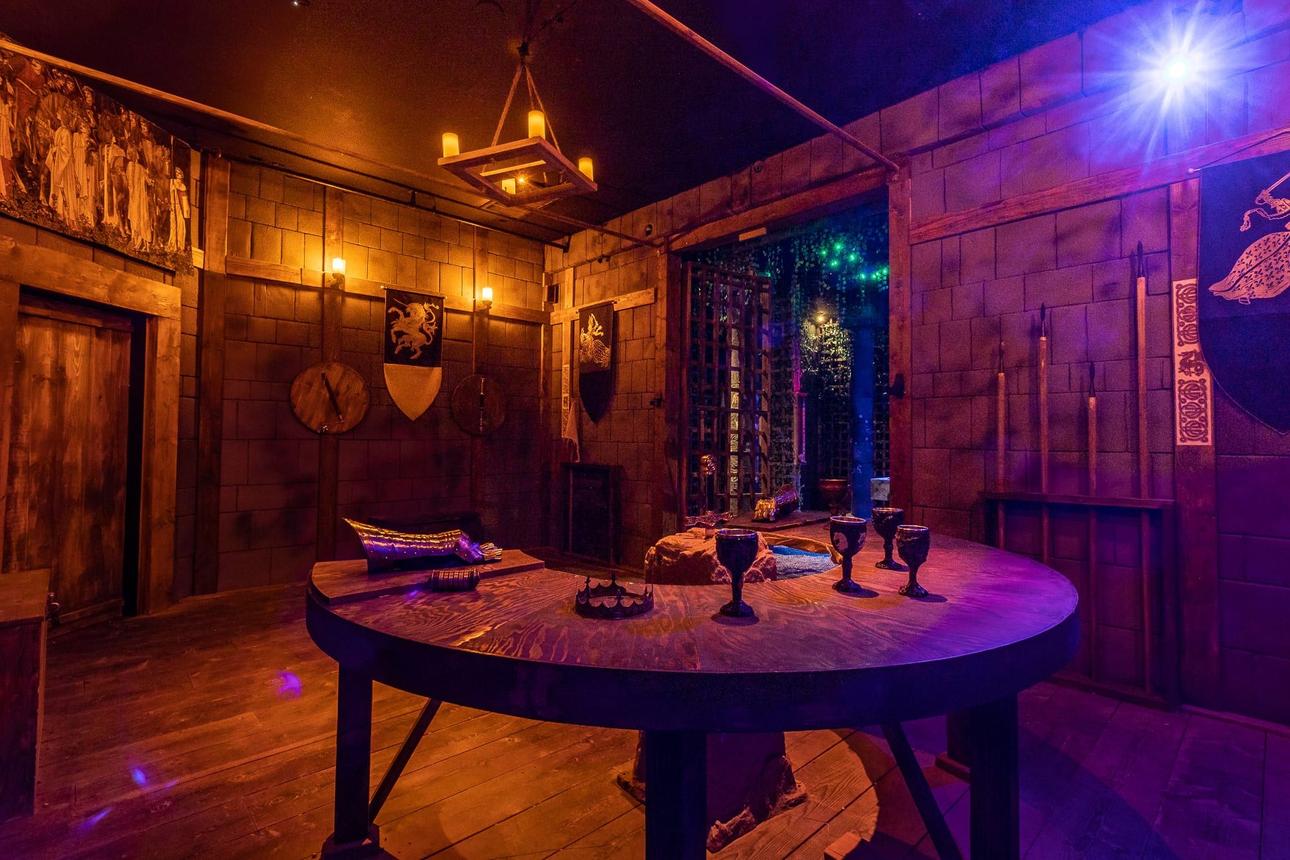Fun and Challenging Escape Room-- Plan Your Next Experience
Fun and Challenging Escape Room-- Plan Your Next Experience
Blog Article
Team Techniques: How to Collaborate Successfully in a Retreat Area
Teams must proactively listen to each participant's insights, appoint functions that straighten with private strengths, and preserve regular check-ins to make sure focus and stop redundancy. By fostering an atmosphere that values cohesion and versatility, groups can substantially heighten their efficiency and success rates.
Establish Clear Interaction

To promote clear communication, it is crucial to assign a main factor of call for information dissemination. Short, concentrated updates from each team member can keep the team educated without frustrating them with information.

Appoint Duties Purposefully
While clear interaction sets the structure for effective teamwork, appointing roles tactically guarantees that each staff member's staminas are used properly. In a getaway area scenario, the time-sensitive and complicated nature of obstacles requires an efficient approach to job delegation. By recognizing and leveraging private expertises, teams can enhance their analytic capabilities and improve total performance.
Somebody with an eager eye for information may succeed in finding hidden items, while a rational thinker might be much better suited to resolving problems. This duty often requires strong organizational and interpersonal skills.
Second, make sure that duties are flexible and versatile. As brand-new obstacles emerge, the group should be able to pivot, reallocating tasks as required. This adaptability assists preserve momentum and prevents bottlenecks that could occur due to stiff role projects.
Ultimately, a critical strategy to function task not just takes full advantage of the staminas of each employee but also fosters a cohesive atmosphere, driving the team towards a successful escape.
Utilize Diverse Abilities
Recognizing and harnessing the varied abilities within your team can considerably boost your performance in an escape area. Each employee brings one-of-a-kind staminas to the table, and efficiently leveraging these capabilities can accelerate problem-solving and boost overall performance. A group participant with solid analytical skills may succeed at deciphering complicated codes or patterns, while one more with eager empirical abilities might promptly spot covert hints that others may forget.
Motivate group participants to articulate their insights and ideas promptly, ensuring that all potential solutions are considered. Additionally, assigning tasks that straighten with each participant's staminas can avoid bottlenecks and make certain that progression is constant.
Furthermore, diversity in abilities usually converts to diversity in thinking designs, which is very useful in a getaway room setup. While some obstacles may require sensible reasoning and accuracy, others may gain from creative and association of ideas. By identifying and leveraging pop over to this site this diversity, groups can attend to a broader variety of difficulties much more properly, consequently enhancing their chances of an effective escape.
Manage Time Properly

Recognize noticeable puzzles and separate tasks based on group members' strengths, making certain have a peek at this website that nobody is still. This method can help maintain the team concentrated and avoid time from sliding away unnoticed.
Additionally, prevent one-track mind. If a problem is taking too long, revolve team participants or go on to an additional challenge, returning later on with fresh point of views. Interaction is vital-- keep everybody upgraded on resolved problems and staying jobs to avoid repetitive efforts.
Finally, make use of any type look at here now of tips or clues moderately yet strategically - best escape room. Recognizing when to ask for assistance can conserve valuable time. By adhering to these time monitoring principles, groups can considerably boost their possibilities of an effective and pleasurable retreat room experience
Debrief and Show
Representation is an important element of group development and enhancement in the context of retreat rooms. As soon as the challenge is completed, whether efficiently or not, it is important for the group to participate in an organized debriefing session. This process allows employee to assess their performance, recognize toughness, and pinpoint locations for renovation.
Begin the debrief by discussing what went well. Highlight particular circumstances of reliable interaction, analytical, and cooperation. Identifying these positive habits strengthens them and motivates their repeating in future difficulties.
Following, resolve the barriers encountered. Discuss moments of confusion, miscommunication, or ineffective strategies. Encourage an open and constructive dialogue where team participants can share their perspectives without fear of objection. This fosters a society of continual improvement and learning.
Verdict
Finally, successful collaboration in an escape area is asserted upon clear communication, strategic duty tasks, the effective use of diverse skills, and skillful time monitoring. Routine check-ins and structured debriefings are essential for keeping focus and fostering continual improvement. By developing a cohesive and adaptive group environment, the chance of effectively solving problems and accomplishing the purpose of getting away the room is dramatically improved. This strategy not only makes certain success however additionally promotes cumulative growth and understanding.
Report this page